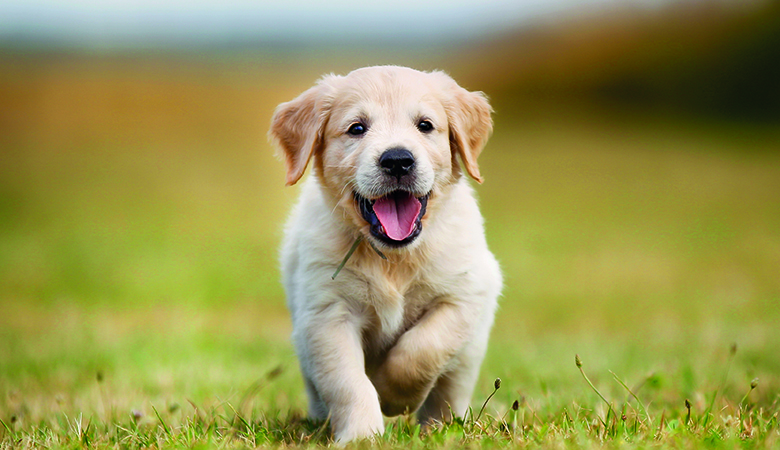How do you keep your puppy healthy?
Written by Indy |
This article was written by Royal Canin. A healthy puppy is a happy puppy. That’s why you want to keep your puppy in the best possible condition and take good care of him. We’re here to help you with that.

Dental care for puppies
Only 2% of owners teach their puppy to get used to tooth brushing. And that’s a real shame, because dental care is incredibly important. The consequences of plaque and tartar can become quite serious and painful later in life. Eventually, your dog could even lose its teeth.
That’s why it’s best to teach your puppy to get used to daily brushing from a young age. Add it to your routine, for example after the last walk or just before the morning walk.
Coat care
Especially if your puppy has a long-haired coat, daily grooming is a must. It helps prevent nasty tangles, and regular combing and brushing makes grooming less intensive — for both you and your puppy. Make sure to use the right tools that are suitable for your puppy’s coat type.
But even dogs with shorter coats should be taught to get used to coat care. This helps your puppy get accustomed to being handled and allows you to quickly spot parasites or irregularities so you can act fast to keep your puppy healthy.
Proper puppy nutrition
Nutrition plays a major role in your puppy’s health. By feeding him food that suits his life stage, lifestyle and breed, you support his health in the best possible way.
Puppies are still growing rapidly, and that requires a different nutritional composition compared to adult dogs.
Because there are major differences between the various dog breeds, there are also many different types of food. There are puppy foods for very small dogs, very large dogs, but also for highly active or less active dogs. There are even breed-specific formulas to precisely meet the unique nutritional needs of that specific breed.
It’s worth taking the time to find out which food is most suitable for your puppy.
Neutering/spaying
It’s a misconception that your puppy becomes fully grown after being neutered or spayed. Most puppies still benefit from eating special puppy food until they are fully grown. When that is depends on your puppy’s size.
Always consult your vet to decide if and when neutering or spaying your dog is appropriate.
Exercise
Exercise helps prevent overweight. Being overweight can lead to:
- Skin conditions
- Diabetes
- Bladder grit / bladder stones
- Lowered immunity
- Joint problems
Be careful not to over-exercise your puppy, as their bones and joints are still developing. Build up physical activity gradually.
Playing (with suitable toys), training and walking not only keeps your puppy fit — it’s also great for your bond. Spending lots of time with your puppy helps build mutual trust.
Vet visits and vaccinations
In addition to the regular vet visits for vaccinations, it’s also important to take your puppy for a health check at least once a year. This allows your vet to monitor your puppy’s weight, check for parasites, and detect any potential health problems early.



